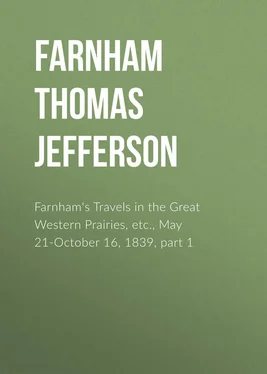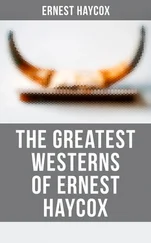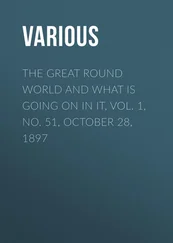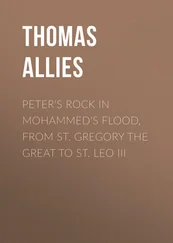Thomas Farnham - Farnham's Travels in the Great Western Prairies, etc., May 21-October 16, 1839, part 1
Здесь есть возможность читать онлайн «Thomas Farnham - Farnham's Travels in the Great Western Prairies, etc., May 21-October 16, 1839, part 1» — ознакомительный отрывок электронной книги совершенно бесплатно, а после прочтения отрывка купить полную версию. В некоторых случаях можно слушать аудио, скачать через торрент в формате fb2 и присутствует краткое содержание. Издательство: Иностранный паблик, Жанр: foreign_antique, foreign_prose, Путешествия и география, на английском языке. Описание произведения, (предисловие) а так же отзывы посетителей доступны на портале библиотеки ЛибКат.
- Название:Farnham's Travels in the Great Western Prairies, etc., May 21-October 16, 1839, part 1
- Автор:
- Издательство:Иностранный паблик
- Жанр:
- Год:неизвестен
- ISBN:нет данных
- Рейтинг книги:3 / 5. Голосов: 1
-
Избранное:Добавить в избранное
- Отзывы:
-
Ваша оценка:
- 60
- 1
- 2
- 3
- 4
- 5
Farnham's Travels in the Great Western Prairies, etc., May 21-October 16, 1839, part 1: краткое содержание, описание и аннотация
Предлагаем к чтению аннотацию, описание, краткое содержание или предисловие (зависит от того, что написал сам автор книги «Farnham's Travels in the Great Western Prairies, etc., May 21-October 16, 1839, part 1»). Если вы не нашли необходимую информацию о книге — напишите в комментариях, мы постараемся отыскать её.
Farnham's Travels in the Great Western Prairies, etc., May 21-October 16, 1839, part 1 — читать онлайн ознакомительный отрывок
Ниже представлен текст книги, разбитый по страницам. Система сохранения места последней прочитанной страницы, позволяет с удобством читать онлайн бесплатно книгу «Farnham's Travels in the Great Western Prairies, etc., May 21-October 16, 1839, part 1», без необходимости каждый раз заново искать на чём Вы остановились. Поставьте закладку, и сможете в любой момент перейти на страницу, на которой закончили чтение.
Интервал:
Закладка:
Of these several sources of gain, it would seem the Messrs. Bents 39 39 Silas Bent of St. Louis (1768-1827), judge of the superior court of the territory and prominent at the bar, had seven sons. The third, John (1803-45), remained in St. Louis, was admitted to the bar, and held the office of district attorney. The others went out upon the frontier. In 1826 William W., Charles, Robert, and George formed a partnership with Ceran St. Vrain and built a picket fort high up on the Arkansas. The following year they removed somewhat farther east, and built an adobe. William W. Bent was the chief founder of the enterprise. A daring Indian fighter, tradition describes his defeat of two hundred savages after a three days' battle. He married a Cheyenne woman, and made his home at Bent's Fort. In 1847-48 he acted as guide for the American army against New Mexico, whence his title of colonel. For one year (1859) he served as Indian agent, and died at his home in Colorado, May 19, 1869. Robert and George both died young, about the year 1841. They were buried near the fort, their remains afterwards being removed to St. Louis. For Charles Bent, who made his home at Taos, see our volume xix, p. 221, note 55. – Ed.
avail themselves; since, on meeting the gentleman in charge of the waggons before spoken of, he informed us that he had lost thirty Mexican mules and seven horses; and desired us, as we intended to pass his post, to recover and take them back. A request of any kind from a white face in the wilderness is never denied. Accordingly, we agreed to do as he desired, if within our power.
We made little progress to-day. Our packs, that had been soaked by storm and stream, required drying, and for that purpose we went early into camp. The country in which we now were, was by no means sacred to safety of life, limb or property. The Pawnee and Cumanche war-parties roam through it during the spring and summer months, for plunder and scalps. The guards, which we had had on the alert since leaving Council Grove, were therefore carefully stationed at nightfall among the animals around the tent, and urged to the most careful watchfulness. But no foe molested us. In the expressive language of the giant of our band, prefaced always with an appropriate sigh and arms akimbo, "We were not murdered yet."
About twelve o'clock of the 14th, we passed the Little Arkansas. 40 40 Concerning the crossing of the Little Arkansas, consult our volume xix, p. 207, note 45. – Ed.
Our hunters had been there the previous night, and had succeeded in taking a dozen cat-fish. Their own keen hunger had devoured a part of them without pepper, or salt, or bread, or vegetable. The remainder we found attached to a bush in the stream, in an unwholesome state of decomposition. They were, however, taken up and examined by the senses of sight and smell alternately; and viewed and smelt again in reference to our ravenous palates; and although some doubt may have existed in regard to the Hebrew principle of devouring so unclean a thing, our appetites allowed of no demur. We roasted and ate, as our companions had done.
I had an opportunity at this place to observe the great extent of the rise and fall of these streams of the plains in a single day or night. It would readily be presumed, by those who have a correct idea of the floods of water that the thunder-storms of this region pour upon the rolling prairies, that a few miles of the channels of a number of the creeks over which the storms pass may be filled to the brim in an hour; and that there are phenomena of floods and falls of water occurring in this vast den of tempests, such as are found nowhere else. Still, bearing this evidently true explanation in mind, it was with some difficulty that I yielded to the evidences on the banks of the Little Arkansas, that that stream had fallen fifteen feet during the last twelve hours. It was still too deep for the safety of the pack animals to attempt to ford it in the usual way. The banks, also, at the fording-place were left by the retiring flood, a quagmire; so soft, that a horse without burthen could, with the greatest difficulty, drag himself through it to the water below. In our extremity, however, we tied our lashing-lines together, and, attaching one end to a strong stake on the side we occupied, sent the other across the stream, and tied it firmly to a tree. Our baggage, saddles and clothing suspended to hooks running to and fro on this line, were securely passed over. The horses being then driven across at the ill-omened ford, and ourselves over by swimming and other means, we saddled and loaded our animals with their several burthens, and recommenced our march.
The 14th, 15th, and 16th, were days of more than ordinary hardships. With barely food enough to support life, drenched daily by thunder-storms and by swimming and fording the numerous drains of this alluvial region, and wearied by the continual packing and unpacking of our animals, and enfeebled by the dampness of my couch at night, I was so much reduced when I dismounted from my horse on the evening of the 16th, that I was unable to loosen the girth of my saddle or spread my blanket for repose.
The soil thus far from the frontier appeared to be from three to six feet in depth; generally undulating, and occasionally, far on the western horizon, broken into ragged and picturesque bluffs. Between the swells, we occasionally met small tracts of marshy ground saturated with brackish water.
On the night of the 16th, near the hour of eight o'clock, we were suddenly roused by the rapid trampling of animals near our camp. "Indians!" was the cry of the guard, "Indians!" We had expected an encounter with them as we approached the buffalo, and were consequently not unprepared for it. Each man seized his rifle, and was instantly in position to give the intruders a proper reception. On they came, rushing furiously in a dense column till within thirty yards of our tent; and then wheeling short to the left, abruptly halted. Not a rifle-ball or an arrow had yet cleft the air. Nor was it so necessary that they should; for we discovered that, instead of bipeds of bloody memory, they were the quadrupeds that had eloped from the fatherly care of Mr. Bent, making a call of ceremony upon their compatriot mules, &c., tied to stakes within our camp.
17th. We were on the trail at seven o'clock. The sun of a fine morning shone upon our ranks of beasts and men. Were I able to sketch the woe-shrivelled visages of my starving men, with occasional bursts of wrath upon Mr. Bent's mules as they displayed their ungrateful heels to us, who had restored them from the indecencies of savage life to the dominion of civilized beings, my readers would say that the sun never looked upon a more determined disregard of the usages of social life. A long march before us – the Arkansas and its fish before us, the buffalo with all the delicate bits of tender loin and marrow bones, (even the remembrance of them inspires me) – with all these before us, who that has the sympathies of the palate sensibilities within him, can suppose that we did not use the spur, whip and goad with a right good will on that memorable day? Thirty or forty miles, none but the vexed plains can tell which, were travelled over by one o'clock. The afternoon hours, too, were counted slowly. High bluffs, and butes, and rolls, and salt marshes alternately appearing and falling behind us, with here and there a plat of the thick short grass of the upper plains and the stray bunches of the branching columnar and foliated prickly pear, indicated that we were approaching some more important course of the mountain waters than we had yet seen since leaving the majestic Missouri. "On, merrily on," rang from our parched and hungry mouths; and if the cheerful shout did not allay our appetites or thirst, it quickened the pace of our mules, and satisfied each other of our determined purpose to behold the Arkansas by the light of that day.
Читать дальшеИнтервал:
Закладка:
Похожие книги на «Farnham's Travels in the Great Western Prairies, etc., May 21-October 16, 1839, part 1»
Представляем Вашему вниманию похожие книги на «Farnham's Travels in the Great Western Prairies, etc., May 21-October 16, 1839, part 1» списком для выбора. Мы отобрали схожую по названию и смыслу литературу в надежде предоставить читателям больше вариантов отыскать новые, интересные, ещё непрочитанные произведения.
Обсуждение, отзывы о книге «Farnham's Travels in the Great Western Prairies, etc., May 21-October 16, 1839, part 1» и просто собственные мнения читателей. Оставьте ваши комментарии, напишите, что Вы думаете о произведении, его смысле или главных героях. Укажите что конкретно понравилось, а что нет, и почему Вы так считаете.












